Is Sleep Apnea Making You Fatigued?
Often times, one of the first questions people ask someone suffering from fatigue is whether or not he or she is getting enough sleep. That more important question might be whether or not the sleep that the fatigue sufferer does receive is truly restful. Sleep apnea can ruin your sleep and leave you feeling more exhausted than when you went to bed!
Among all the conditions that can cause fatigue one of the scariest is something known as sleep apnea. It also remains one of the least-understood sleep-related complications known to medical science. Most patients have never even heard of it, and it is seldom if ever mentioned in most of the media. And yet, it affects many millions of people every year, disrupting their sleep patterns and causing severe fatigue.
What is Sleep Apnea?
Sleep apnea is an ailment that involves the neck muscles and air passages. What actually happens to sleep apnea sufferers while they sleep is that the muscles in the neck fail to function properly, and end up allowing the air passages to close. This causes an interruption of the oxygen flow as the person stops breathing periodically throughout the night.
Did You Know?
The word “apnea” literally means “suspension of breathing.” It comes from the Greek word apnoia, which translates as the “absence of respiration.”
When you suffer from sleep apnea, your body literally stops breathing over and over again throughout the course of your sleep cycle. Often times, this can occur so frequently that your breathing is suspended several hundred times in just one seven or eight hour period! That means that every few minutes, a person with sleep apnea just stops breathing. Does that sound like restful sleep to you?
Sleep apnea can be the result of a variety of different risk factors, including:
- Simply being a man, and especially one who is older than forty years of age
- Being over the recommended bodyweight for your height and age
- Suffering from any sort of nasal impairment – including allergies, a deviated septum, and sinus-related issues
- A genetic predisposition for the condition. It is hereditary, apparently
- Oversized tongue or tonsils
- A greater than average-sized neck
How Does Sleep Apnea Make You Tired?
The first thing you need to know about this condition’s effects is that they are considered to be serious in nature. Sleep apnea can lead to problems with your cardiovascular system, which can lead to high blood pressure, stroke, and even cardiac arrest. In addition, it can cause liver scarring, nocturia, loss of libido, memory problems, and depression. In other words, if you think you might be suffering from it, take that thought seriously.
With respect to fatigue, the answer is fairly simple. Because apnea wakes you up repeatedly throughout the night, you never reach that restful state of sleep that you need to restore your energy levels. As a result, you can wake up more fatigued than when you went to bed, and then suffer drowsiness and exhaustion throughout the daytime hours.
From a biological standpoint, this all makes sense. Without that steady flow of oxygen reaching your blood stream, the hemoglobin doesn’t have the oxygen it needs to empower the mitochondria in the cells to create the ATP the body needs to power its activities. Sure, some energy will be created, but it will be but a fraction of what you’ll actually need to make it through the day. It’s a little akin to trying to fill up your car’s gas tank with a hose that turns itself off every couple of seconds. If you only have a small amount of time in which to fill the car with fuel, odds are that the gas tank’s going to be mostly empty when you’re done.
How Can You Deal With Sleep Apnea?
Unlike many fatigue issues, dealing with sleep apnea requires the intervention of medical professionals. As noted earlier, this is a serious medical condition that requires medical solutions. Sure, there are some lifestyle changes that will need to occur as well, but the main focus of treatment should be on medical therapies.
Rely on Your Doctor
Your doctor is likely to refer you to a sleep specialist if his initial examination and questioning indicates the possibility of apnea. If the specialist recommends it, you may have to participate in a sleep monitoring session. This tests your sleep to determine the need for serious intervention. This can either be performed at a clinic, where they monitor your sleep overnight, or at home using simpler tests to measure heart rate, oxygen levels in your blood, and breathing patterns.
If necessary, you may then be referred to an otolaryngologist to ensure that there is no physical nose or throat blockage. A cardiologist or neurologist may also be employed to rule out other potential causes. Once a diagnosis is confirmed, the severity of your condition will determine the preferred treatment. In mild instances, you will be given certain lifestyle changes to make that can improve your sleep. More serious cases would necessitate either surgery or the use of devices that improve breathing efficiency.
Lifestyle Changes
There are a number of important changes you can make to your lifestyle. These can all help to reduce the pressure on your air passages and make it more comfortable for you to sleep at night:
- Sleep on your side. One of the main issues involved with apnea is the soft palate’s tendency to block the airway when you sleep on your back. This problem is eliminated when you sleep on your side.
- Use nasal sprays or other products that can help to keep those passages clear.
- Do not drink alcohol or smoke. Both can inhibit breathing.
- Lose weight. Since one of the chief causes of apnea is excessive weight, you can take pressure off your throat muscles by losing it.
- Exercise improves all areas of respirations. It can also aid you in your weight loss efforts.
Therapies
The CPAP machine is the most common device employed for treating this condition. It delivers air pressure through a nose mask while you are sleeping. While this pressure might sound uncomfortable, the amount of pressure is typically set so that it is just slightly higher than the air outside the mask. The mask itself, however, is a source of irritation for many patients. They often struggle to find one that is not so restricting that it prevents them from getting comfortable enough to sleep.
There are also smaller devices that can fit over the nostrils while you sleep, providing a valve to improve air flow. In addition, there are oral devices that simply work to keep the throat passage open and prevent it from closing during sleep. Some patients just rely on oxygen tanks while they sleep. These devices are usually only used when the CPAP proves to be too uncomfortable for the patient to utilize.
Surgery
Surgery is an option of last resort, as it should be. It is also typically employed only in cases where there is an obvious physical fix that can accomplish the patient’s goals. These can include the removal of tissue that might contribute to the blocking of air passage, implants in the soft palate, and nasal surgery to correct a deviated septum or other nasal issues.
The fact is that there is treatment for your sleep apnea, which means that any fatigue related to that condition is treatable as well. The important thing is to get medical help for this condition as soon as you become aware of the issue. That’s the best way to avoid more serious complications, while also providing you the treatment you need to recover your health and start getting the rest your body needs.
You might also be interested in:
- Sleep Apnea. http://www.webmd.com/sleep-disorders/sleep-apnea/sleep-apnea
- Getting a Diagnosis. http://www.sleepapnea.org/treat/diagnosis.html
- Sleep Apnea. http://www.medicinenet.com/sleep_apnea/article.htm#sleep_apnea_facts
- Lifestyle and home remedies. http://www.mayoclinic.org/diseases-conditions/sleep-apnea/basics/lifestyle-home-remedies/con-20020286
- Women and Sleep Apnea. http://sleepfoundation.org/ask-the-expert/women-and-sleep-apnea


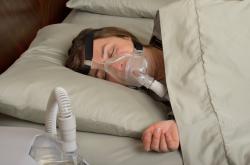
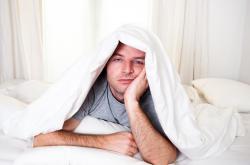
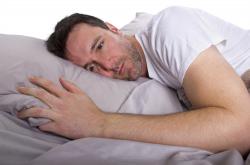

.jpg)
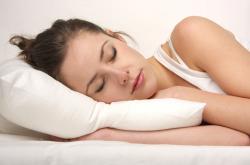
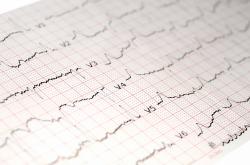

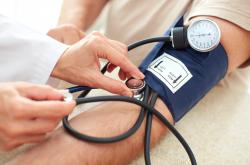









Leave a comment